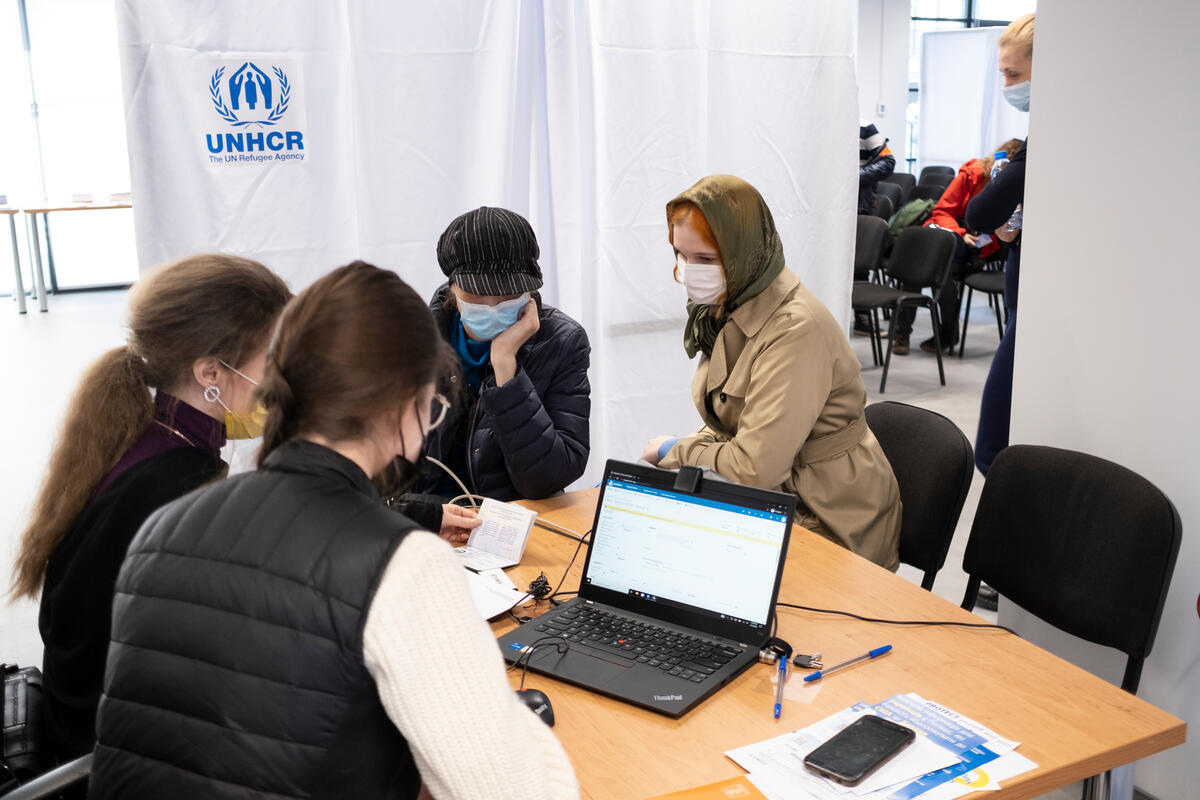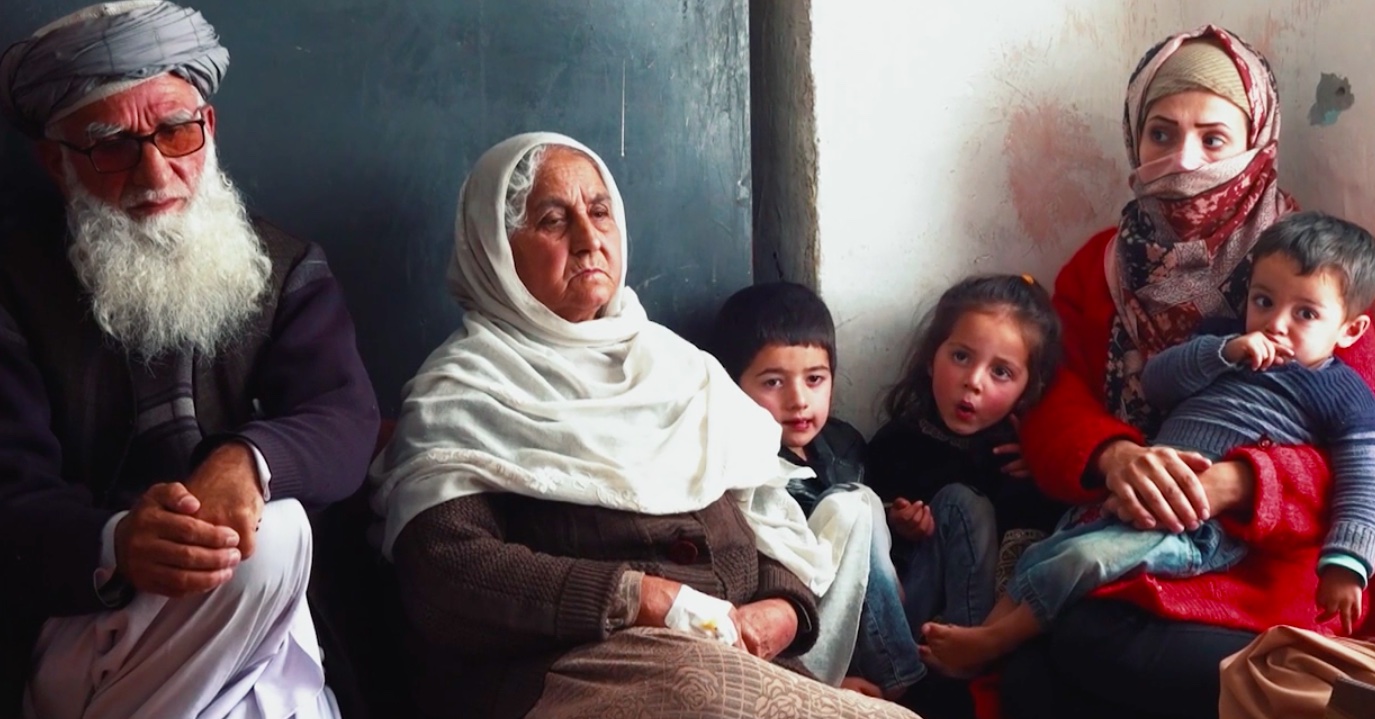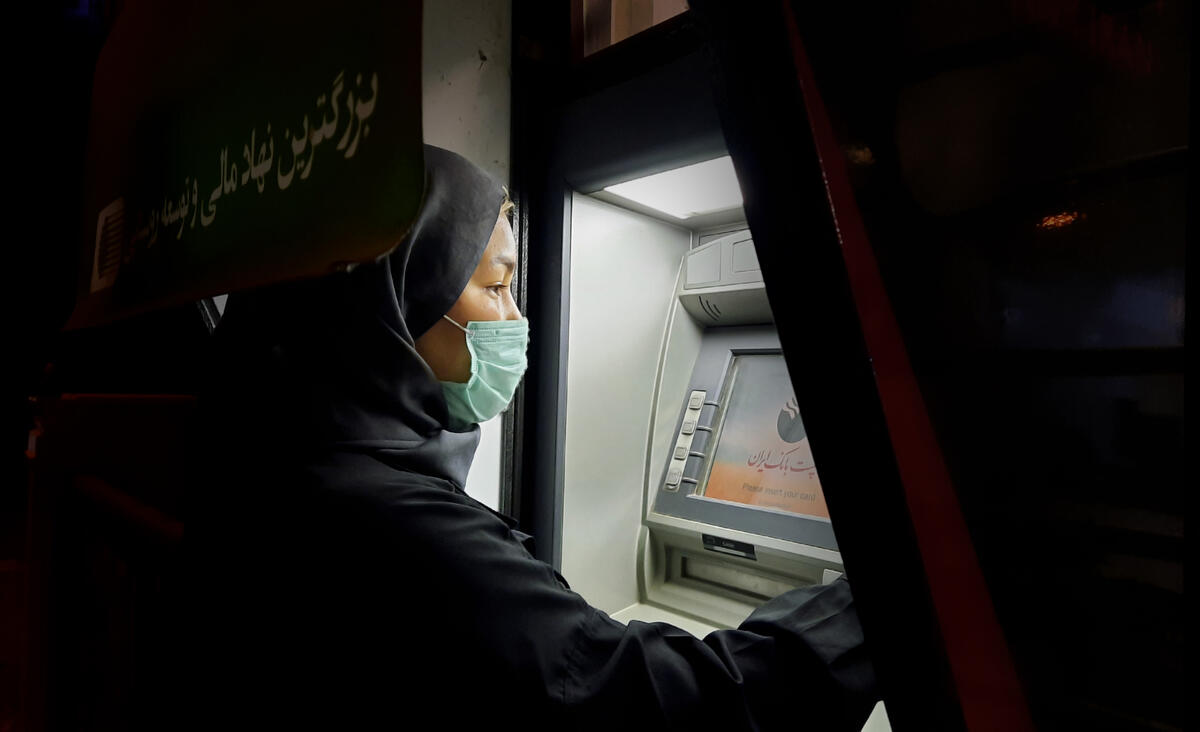UNHCR steps up winter preparations for tens of thousands of Syrians
UNHCR steps up winter preparations for tens of thousands of Syrians

GENEVA, October 12 (UNHCR) - With Syrian refugee numbers still rising in neighbouring states, UNHCR and its partners are stepping up efforts to prepare for the onset of winter weather. "We are budgeting more than US$64 million for winter preparations throughout the region, including for displaced Syrians in their own country," Melissa Fleming, the refugee agency's chief spokesperson, told journalists in Geneva on Friday.
She said that UNHCR's plans for Jordan, where average temperatures drop to two degrees Celsius between mid-November and mid-March, will focus on refugees in camps and those living in the local communities. Of the more than 105,000 Syrians in Jordan who have registered as refugees or are awaiting registration, a quarter are in the Za'atri camp and the rest are in towns and cities. "Our planning estimate is that 250,000 Syrians could need assistance by the end of the year," Fleming said.
It's expected that many of those registering over the coming weeks will be refugees who have been living in Jordan for some months. Many of these urban refugees have been using their own resources or relying on help from relatives or Jordanian host families.
UNHCR and its partners plan to provide additional winter help to at least 50,000 urban refugees. In addition to an existing monthly cash assistance programme for the most vulnerable families, the agency will include an extra winterization amount in November and December ranging from 50 to 100 Jordanian dinars (US$70-$140), depending on family size.
In addition, UNHCR will increase the provision of one-time emergency cash assistance grants as well as a bonus to help cover urgent needs such as clothing, fuel for heating, and rental payments. The majority of those seeking such emergency assistance in Jordan say they have been threatened with eviction and need help paying the rent.
"We will also issue basic needs vouchers, which can be used in designated shops across Jordan to purchase winter clothing and a variety of non-food items for use during the winter," Fleming said.
A winter strategy for Za'atri camp has been prepared by UNHCR partner the Norwegian Refugee Council and includes distribution of stoves, fuel, warm clothing, thermal blankets, plastic sheeting, hot water bottles and other items. The kit is on top of regular non-food items. Tent modifications are also planned for better insulation. At the same time, donors are providing more than 2,500 prefabricated family shelters, some 300 of which have already been set up in the camp.
The winter plan in Lebanon, which hosts more than 94,000 refugees, aims at ensuring that the growing refugee population has accommodation; that the accommodation provides sufficient protection from the cold; and that refugees have enough fuel, warm clothing and other non-food aid items.
UNHCR has budgeted US$4.7 million for a programme that will include cash rental assistance for some 3,000 families; renovations to the homes of 1,500 host families; provision of 150 unfinished buildings and collective shelters for up to 1,300 families; 1,000 transitional shelters for those in urgent need and pre-fabricated shelters for up to 250 families.
To ensure all accommodation is safe and secure against the elements, support will be extended to 3,630 households through activities that include roofing of unfinished houses; provision of shelter kits and labour (if required) to winterize sub-standard dwellings; and winterizing tents for refugees living in nomadic tented settlements.
"To ensure that refugees have enough non-food aid supplies to get through the cold months, we have budgeted US$8.4 million for heating fuel to 26,000 households; 3,000 heaters and cooking stoves; 32,000 winter blankets; and 60,000 $25-vouchers for the purchase of winter clothing," Fleming explained in Geneva.
In Turkey, a UNHCR team visited camps last month and discussed winter planning with Turkish officials on the ground and in Ankara. A number of shelter options are under consideration, including the use of pre-fabricated homes in areas where temperatures are coldest. Some are already in place in Oncupinar Camp, Kilis. More are needed.
A winter tent has been developed by Turkey's Disaster and Emergency Management Presidency and the Turkish Red Crescent Society, who have ordered 30,000 from a local supplier. Discussions are also under way to ensure preparedness for the needs of urban refugees.
In Iraq, the number of Syrians seeking asylum is now more than 39,000, almost 32,000 in the Kurdistan region and above 7,000 in Al-Qaem, Anbar governorate. Three camps have been established and refugees in these are the priority in UNHCR's winter preparations, followed by programmes for those in living in the community and with host families.
Winter plans include replacement of the current lightweight tents in Al-Qaem with 1,230 family tents and the provision of heaters, fuel, thermal blankets and quilts, and the replacement of tented schools with heated, pre-fabricated classrooms. Winter assistance will also be given to up to 12,000 vulnerable urban refugees, including the provision of kerosene over a three-month period, along with two thermal blankets per person.
In Syria itself, a US$32.4 million UNHCR "Keeping Families Warm" programme will target 500,000 Syrians over the next three months. The plan is based on three main elements: rehabilitation of communal shelters; distribution of non-food aid; and provision of one-time cash assistance to the vulnerable. "Currently, we are US$12 million short of being able to fund this. The money is urgently required if we are to complete all of our winterization activities on time," said Fleming in Geneva.
UNHCR plans to rehabilitate 120 communal centres to house uprooted people. Work will include building partitions and installing windows and doors; heating communal areas; provision of water, sanitation and communal kitchens.
The distribution of non-food aid will include more mattresses, rugs and heavy winter quilts. To date, these relief items have reached 200,000 people across Syria. Subject to funding, UNHCR plans to deliver to another 300,000 people by the end of the year.
"We will also provide displaced Syrians with cash assistance to cover winter expenses such as heating and electricity bills. To date, more than 17,000 people have received such support in Al Nabek, south of Homs.








